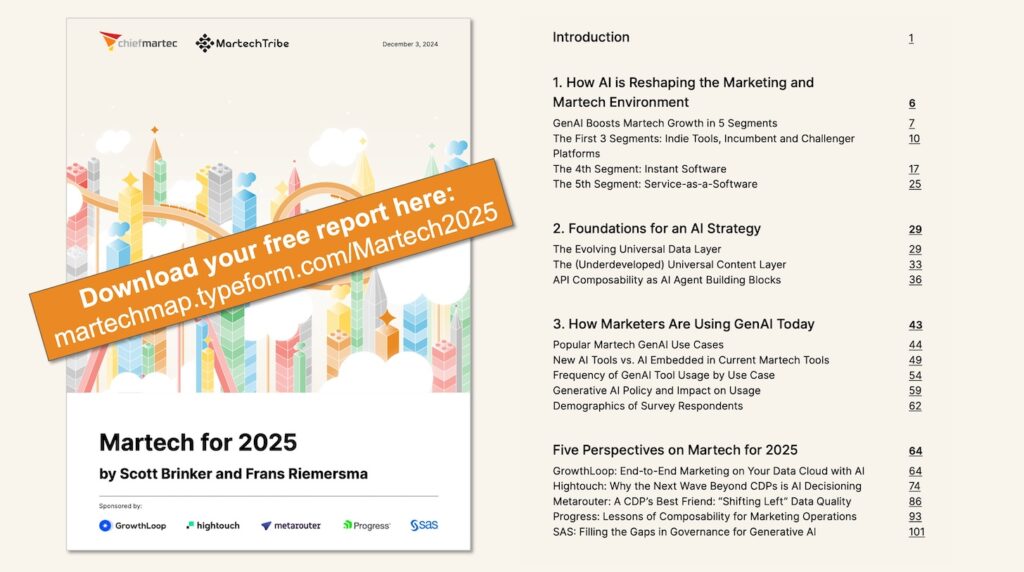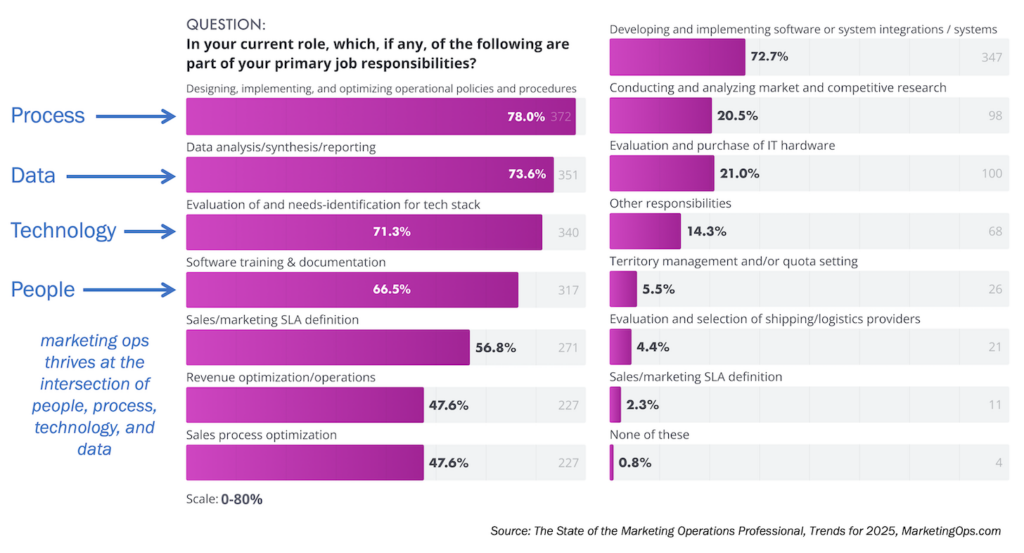My recent article in InformationWeek — on why the marketing technology genie isn’t going back into the IT bottle — has stirred a few lively responses.
Caron Carlson, editor of FierceCIO — got to love that name, especially walking into a debate about the future of marketing technology — responded with an editorial to her readers, Are you ready to let marketing handle its own IT?
One of her concerns is my suggestion that, while marketing should largely run its own technology, IT could continue “to provide shared infrastructure, coordinate data and technology that crosses multiple departments (such as CRM systems), serve as a trusted consultant and enforce security and regulatory compliance as a checks-and-balances authority.”
Caron’s reaction:
I would love to hear from you on this vision, but at first glance it looks to me a nightmare in the making. As a general matter, any position that comes with enormous responsibility but without the commensurate authority to fulfill it is an untenable position. How could it be possible to ensure information security, compliance and integration in a large organization when one is not making either the strategic or nitty-gritty decisions involving whole sets of applications?
The emphasis added is mine because I strongly agree with Caron’s meta logic. A key reason I advocate for greater technology leadership in the marketing department is because I don’t believe that marketing can have responsibility for marketing outcomes that are based on technology — the bulk of digital marketing, which is becoming the bulk of all marketing — without equally having the authority to manage that technology.
Therefore, I appreciate the rationale of her argument perfectly.
So is this just a stalemate? In many organizations today, sadly, yes. It’s Shadow IT vs. Shadow Marketing and the unproductive tug-of-war that was vividly reported by the CMO Council and Accenture.
But I don’t believe it has to be.
Governance and Management Are Not the Same Thing
One possible resolution to the paradox is understanding the difference between management and governance. Throughout organizations, we have many instances where one group provides governance and oversight for what another team actually manages.
For instance, HR often governs hiring practices — but actual hiring choices are made by managers within each department. Finance often governs budgeting and investment — but all the other departments are responsible for allocating and wielding budgets within that framework. Ultimately, the Board of Directors governs the way a company serves the interests of its shareholders — but it’s the CEO that actually runs the firm.
In all these cases, most people would agree that governance is a good idea — it provides checks-and-balances in an organization and coordinates disparate departments around a common set of playing rules. But it balances that with enormous freedom (and, in equal proportion, risk) given to those departments to execute their mission. It’s not perfect, but given the complexities of the trade-offs, I think it works pretty well — and is adaptable to a wide range of different organizations.
Is it reasonable to position information technology security and regulatory compliance as something that IT governs, but that other departments — in this case, marketing — incorporate into their management of technology within their domain?
Personally, I think that’s more feasible than the other way around — having marketing govern IT. There are many reasons why, but the least controversial would be to say that IT security and compliance have much more well-defined best practices and “rules” than marketing. But if you have a different opinion, please make your case — we could use as much creative discussion around this topic as possible.
By the way, my thoughts about governance vs. management originate from an amazing book written by Peter Weill and Jeanne W. Ross — two IT leadership gurus — IT Governance: How Top Performers Manage IT Decision Rights for Superior Results. Many of the governance archetypes they discuss could be well adapted to integrating a marketing-led technology group with a broader IT structure.
Caron mentions at the end of her editorial that she has “an idea for one possible alternative, but more on that later. For now, I’d really like to hear from you. Send me your thoughts.”
I look forward to reading her idea, theirs, and yours. What are innovative ways to break the stalemate and supercharge marketing technology management?




Hi Scott,
To be honest I’m enjoying the open debate. We’re a digital agency that often takes on the responsibility of marketing technologists for our clients, sitting firmly between the marketing and technology functions. When we screw up, we’re accountable.
Now i’d like get your thoughts on accountability. I always come back to that. If you take us out of the picture and you have an IT savvy marketing department that runs a damaging promotion owing to a technical glitch, who’s ultimately accountable when the CEO comes knocking? IT for not bringing (making) its solutions available in a digestible format or Marketing for not having the right level of technical expertise? Or something else?
What are your thoughts?
Hi, Cleve. I agree — the open debate is good.
Accountability is the issue at the end of the day. Accountability for marketing performance — do we win leads, sales, marketshare, etc. — and accountability for technical implementation (security, robustness, compliance).
My opinion is that because the marketing and the technology are so entwined in “marketing technology,” these accountabilities are inevitably entwined as well.
While the devil is in the details — particular circumstances will have different sources of culpability — I’d generally say that marketing should take responsibility for technical foul-ups in the execution of their technology strategies and tactics. If they are given the authority to make marketing technology decisions in support of their overarching objectives, they must be accountable for the trade-offs they make with that authority.
An agency such as yours sounds like a good role model for marketers driving their own technology. It’s not without risks, but what is? It’s what you need to do to execute brilliant marketing these days.